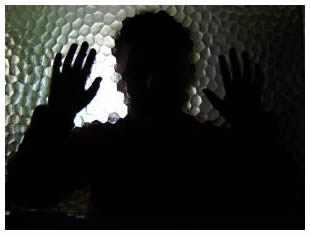 As we discussed in What is Asperger’s Disorder and Adults with Asperger’s Disorder, this condition is a lifelong developmental disorder and mainly manifests in the inability to successfully relate emotionally to others during everyday interactions. There exists a lack of awareness in interpreting social cues; a skill that most of us take for granted. Given that inability, it can be extremely difficult for the family and friends of an Asperger to cope with many of the behavior patterns typically exhibited.
As we discussed in What is Asperger’s Disorder and Adults with Asperger’s Disorder, this condition is a lifelong developmental disorder and mainly manifests in the inability to successfully relate emotionally to others during everyday interactions. There exists a lack of awareness in interpreting social cues; a skill that most of us take for granted. Given that inability, it can be extremely difficult for the family and friends of an Asperger to cope with many of the behavior patterns typically exhibited.
As Asperger’s Disorder is a relatively recently classified disorder, (see Adults with Asperger’s Disorder), an adult’s diagnosis with the disorder may occur after the diagnosis of a child or a grandchild. When this occurs, family members often then relate the behaviors of the newly-diagnosed child to that of the lifelong behavior patterns of a parent or spouse.
This “Ah-ha” phenomenon is often accompanied by relief on the part of the parent, partner, or child of an Asperger sufferer, but with it comes grief when the realization hits home that there is little likelihood of gross changes in the adult sufferer. For instance, the daughter whose son is diagnosed with Asperger’s may then realize that her father had the same constellation of symptoms, and the reason for her father’s apparent disconnectedness, coldness, and inability to empathize with her suddenly becomes crystal clear.
Coping with a family member with Asperger’s can be frustrating and demoralizing, particularly with an adult sufferer who is undiagnosed. There can be much suffering and misunderstanding by the child of a parent with Asperger’s, and certainly psychological damage is likely. Once an effective diagnosis is made, at least there is some understanding for other family members as to why the Asperger sufferer behaves the way that they do.
One of my client’s had a mother-in-law who exhibited all the classic symptoms of Asperger’s. Previous to the mother-in-law’s diagnosis, this distressed client had suffered enormously at the hands of this woman, as had her husband and children. She had called her “The Hologram.” Her explanation was that “she looks like a normal human being, and she’s smart and has a good job, but there’s just nothing there.” Hence the name she had dubbed her mother-in-law in order to cope with the stress that family get-togethers inevitably brought.
The term “hologram” was an unwittingly apt description of her mother-in-law. There was no intimacy, no understanding, no empathy, just a pragmatic approach to life that did not take into account the emotions of the people she dealt with. Nor was she able to adapt herself to the changing needs of different individuals or situations.
The diagnosis of this woman’s grandchild with Asperger’s led to a realization by her own adult children as to why their mother was the way she was. It answered a lot of questions, and gave these adult children some closure regarding the childhood hurts they had experienced due to her inability to relate to them.
Next blog, we will look at the feelings experienced when a diagnosis of adult Asperger’s is made.

